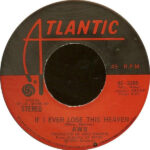“September Song,” a poignant ballad, resonates deeply with its exploration of aging, love, and the passage of time. Penned by Kurt Weill with lyrics by Maxwell Anderson for the 1938 musical Knickerbocker Holiday, the song has transcended its theatrical origins to become a timeless classic, interpreted by numerous artists across genres. The lyrics, seemingly simple, weave a rich tapestry of metaphors and emotions, centered around the symbolic month of September.
The opening verses establish a narrative voice reflecting on past youthful pursuits of love. The singer recounts a time of “waiting game,” suggesting a patient, almost strategic approach to courtship. Phrases like “tears in place of pearls” hint at the emotional currency exchanged in romantic endeavors. However, this youthful patience contrasts sharply with the song’s core message.
The chorus, the heart of “September Song Lyrics,” introduces the central metaphor: the long stretch from “May to December.” This seasonal imagery immediately evokes the cycle of life, with May representing youth and vitality, and December symbolizing old age and decline. September, positioned towards the end of this cycle, signifies the autumn of life, a period of reflection and dwindling time. The lines “days grow short when you reach September” and “autumn weather turns the leaves to flame” paint a vivid picture of fading youth and the urgency of time.
The verses that follow reinforce this theme of aging and diminished time. References to losing a tooth and walking “a little lame” are stark reminders of physical decline. Yet, amidst this acknowledgement of aging, there’s a powerful undercurrent of cherishing the present. Phrases like “wine dwindles down to a precious brew” and “days turn to gold as they grow few” suggest an appreciation for the remaining moments and a desire to share them with a loved one.
The bridge shifts perspective slightly, contrasting the superficiality of youthful courtship in “Spring” with the deeper, more substantial offerings of maturity. Young men are depicted with “little to offer, but the songs they sing,” highlighting the fleeting nature of youthful charm. In contrast, the singer, though aged and “not quite equipped for the waiting game,” possesses “a little money and a little fame,” implying a different kind of value, perhaps the security and experience that come with time.
The recurring chorus and variations in the final lines (“days dwindle down to a precious few”) emphasize the overarching message of time’s preciousness. “September Song lyrics” ultimately serve as a poignant meditation on aging, love, and the importance of cherishing the present moment as time inevitably marches towards “December.” The song’s enduring appeal lies in its ability to tap into universal human experiences of love, loss, and the bittersweet beauty of time’s passage.


